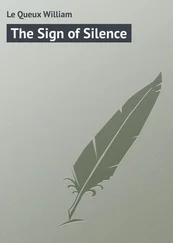William Le Queux - The Sign of the Stranger
Здесь есть возможность читать онлайн «William Le Queux - The Sign of the Stranger» — ознакомительный отрывок электронной книги совершенно бесплатно, а после прочтения отрывка купить полную версию. В некоторых случаях можно слушать аудио, скачать через торрент в формате fb2 и присутствует краткое содержание. Жанр: foreign_prose, на английском языке. Описание произведения, (предисловие) а так же отзывы посетителей доступны на портале библиотеки ЛибКат.
- Название:The Sign of the Stranger
- Автор:
- Жанр:
- Год:неизвестен
- ISBN:нет данных
- Рейтинг книги:4 / 5. Голосов: 1
-
Избранное:Добавить в избранное
- Отзывы:
-
Ваша оценка:
- 80
- 1
- 2
- 3
- 4
- 5
The Sign of the Stranger: краткое содержание, описание и аннотация
Предлагаем к чтению аннотацию, описание, краткое содержание или предисловие (зависит от того, что написал сам автор книги «The Sign of the Stranger»). Если вы не нашли необходимую информацию о книге — напишите в комментариях, мы постараемся отыскать её.
The Sign of the Stranger — читать онлайн ознакомительный отрывок
Ниже представлен текст книги, разбитый по страницам. Система сохранения места последней прочитанной страницы, позволяет с удобством читать онлайн бесплатно книгу «The Sign of the Stranger», без необходимости каждый раз заново искать на чём Вы остановились. Поставьте закладку, и сможете в любой момент перейти на страницу, на которой закончили чтение.
Интервал:
Закладка:
Then he shook hands with me, and I left him, reassured that I had at least prevented the introduction of any of those clever experts in criminal investigation. The suspicions against Lolita grew darker every hour, yet even though they were well-grounded I was determined to save her.
That broad-shouldered man with whom I had seen her strolling in the early morning after the tragedy puzzled me greatly. Had I only obtained sight of him, I should, perhaps, have learnt the truth. Yet when I reviewed the whole of the mysterious circumstances my brain became awhirl. They were bewildering, for the mystery had become even more inscrutable than it at first appeared.
That my love had some connexion with the affair, I could not for a moment disguise. Her manner, her very admissions in themselves convicted her. Therefore I felt that with the facts of which I was already in possession I had greater chance than the most expert detective of pursuing my own inquiries to a successful issue.
On leaving Sir Stephen Layard’s about nine o’clock, I resolved to ascertain what kind of house was number ninety-eight in Britten Street, Chelsea, the place where lived the Frenchwoman, Lejeune. I recollected the desperate words of my love on the previous night and wondered whether the death of the unknown man might not have altered the circumstances. Somehow I had a distinct suspicion that it might, hence I resolved not to reveal my presence at the place until I had again consulted Lolita.
The darkness was complete when I alighted from the cab in the King’s Road, Chelsea, and turned down the rather dark but respectable street of even two-storied, deep-basemented houses that ran down towards the Embankment. It was one of those thoroughfares like Walpole Street and Wellington Square, where that rapacious genus, the London landlady, flourishes and grows sleek upon the tea, sugar and bottled beer of lodgers. In the night the houses seemed most grimy and depressing, some of them half-covered by sickly creepers, and others putting forward an attempt at colour with their stunted geraniums in window-boxes.
The double rap of the postman on his last round sounded time after time, by which I knew he was approaching me, therefore I retraced my steps into the King’s Road and awaited him.
He had, I noticed, finished his round, therefore a cheery word and an invitation to have a drink at the flaring public-house opposite soon rendered us friendly, and without many preliminaries I explained my reason for stopping him.
“Oh!” laughed the man, “we’re often stopped by people who make inquiries about those who live on our walks. Number ninety-eight Britten Street – a Frenchwoman? Oh, yes. Name of Lejeune. She doesn’t have many letters, but they’re mostly foreign ones.”
“What kind of people live there?” I inquired, whereupon he eyed me rather strangely, I thought, and asked —
“You’re not a friend of theirs, I suppose?”
“Not at all. I don’t know them.”
“Well, I’ll tell you in confidence. Mind, however, you don’t let it out to a single soul – but the fact is that the house is under the observation of the police, and has been for some time. Sergeant Bullen, the detective, is on duty up there at the end of the road,” and he jerked his thumb in that direction. “He said good-night to me only a minute ago.”
“The place is being watched, then?” I gasped in surprise.
“Yes. They’ve been keeping it under observation night and day for a week or more. Bullen told me one day that they expect to make an arrest which will cause a great sensation.”
“For whom are they lying in wait?”
“Oh, that I’m sure I can’t tell you! The ’tecs, although I know ’em well, don’t talk very much, you know.” And then, after some further questions to which I received entirely unsatisfactory answers, we parted.
Chapter Nine
Tells Some Strange Truths
Along the dark street, quiet after the glare and bustle of the King’s Road, I retraced my steps, when, about half-way up, I met a man dressed as a mechanic, idly smoking a pipe. He glanced quickly at me as I passed beneath the light of a street-lamp, and I guessed from his searching look that he was the detective Bullen.
Without apparently taking notice of him I went along almost to the end of the street, until I discovered that the house which Lolita had indicated differed little from its neighbours save that it was rendered a trifle more dingy perhaps by the London smoke. And yet the large printed numerals on the fanlight over the door gave it a bold appearance that the others did not seem to possess. The area was a deep one, but the shutters of the kitchen window were tightly closed. With the exception of the light in the hall the place seemed in darkness, presenting to me a strange, mysterious appearance, knowing all that I did. Why, I wondered, was that police officer lounging up and down keeping such a vigilant surveillance upon the place? Surely it was with some distinct motive that a plain-clothes man watched the house day and night, and to me that motive seemed that they expected that some person, now absent, might return.
There is often much mystery in those rows of smoke-blackened uniform houses that form the side-streets of London’s great thoroughfares, and the presence of the police here caused me to ponder deeply.
My first impulse had been to try and get sight of the mysterious Frenchwoman and her associates, but to escape the observation of that vigilant watcher was, I knew, impossible. So I passed along down to the Embankment, where the river flowed darkly on and the lights cast long reflections.
I was puzzled. I could not well approach the detective without making some explanation of who I was, and by doing so I recognised that I might inadvertently connect my employer’s sister with whatever offence the inmates of the mysterious house had committed.
Yet when I recollected that wild terrified declaration of Lolita’s on the previous night, how she had told me that if the Frenchwoman withheld her secret “it must result in my death,” I felt spurred to approach her at all hazards. There are moments in our lives when, disregarding our natural caution, we act with precipitation and injudiciously. I fear I was given to hot-headed actions, otherwise I should never have dared to run the risk of arousing suspicion in Bullen’s mind as I did during the hours that followed.
From the fact that the house was in darkness there seemed to me a chance that the woman Lejeune was absent and that she might return home during the evening. The detective was apparently keeping watch at the King’s Road end of the street, therefore I resolved to keep a vigilant eye on the Embankment end. She might perchance approach from that direction, and if she did I hoped that I should be able to stop her and obtain a few minutes’ conversation. It was true that I did not know her, yet I felt sufficient confidence in my knowledge of persons to be able to pick out a Frenchwoman in a half-deserted London thoroughfare. The gait and manner of holding the skirts betray the daughter of Gaul anywhere.
Patiently I lounged at the corner, compelled to keep an eye upon the detective’s movements lest he should notice my continued presence. Apparently, however, he had no suspicion of a second watcher, for he stood at the opposite end of the street gossiping with all and sundry, and passing the hours as best he could. Presently a ragged newsvendor came up, and after exchanging words the man shuffled along the street in my direction, while the detective went off to get his supper. Then I knew that the ragged man was one of those spies and informers often employed by the London police and who are known in the argot of the gutter as “policemen’s noses.”
Читать дальшеИнтервал:
Закладка:
Похожие книги на «The Sign of the Stranger»
Представляем Вашему вниманию похожие книги на «The Sign of the Stranger» списком для выбора. Мы отобрали схожую по названию и смыслу литературу в надежде предоставить читателям больше вариантов отыскать новые, интересные, ещё непрочитанные произведения.
Обсуждение, отзывы о книге «The Sign of the Stranger» и просто собственные мнения читателей. Оставьте ваши комментарии, напишите, что Вы думаете о произведении, его смысле или главных героях. Укажите что конкретно понравилось, а что нет, и почему Вы так считаете.












